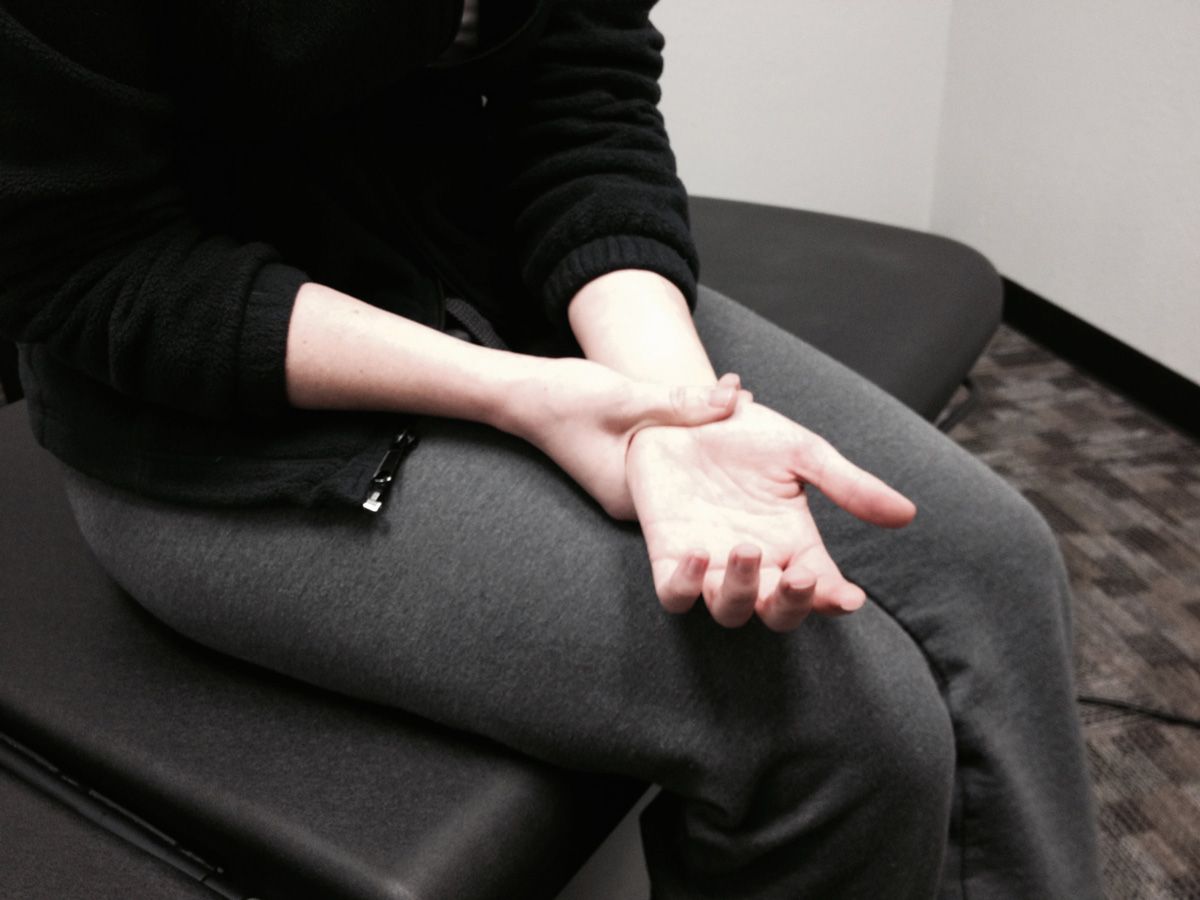
Carpal Tunnel Syndrome Treatment in Bellevue, NE
What is Carpal Tunnel Syndrome?
Carpal tunnel syndrome is a hand and arm condition that causes numbness, tingling and other symptoms. Carpal tunnel syndrome is caused by a pinched nerve in your wrist.
Bound by bones and ligaments, the carpal tunnel is a narrow passageway located on the palm side of your wrist. This tunnel protects a main nerve (Median Nerve) to your hand and the nine tendons that bend your fingers.
Compression of the nerve produces the numbness, tingling and, eventually, hand weakness that characterize carpal tunnel syndrome.
Symptoms of Carpal Tunnel Syndrome:
Carpal tunnel syndrome usually starts gradually with numbness or tingling in your thumb, index and middle fingers that comes and goes. This may be associated with discomfort in your wrist and hand. Common carpal tunnel syndrome symptoms include:
-
Tingling or numbness. You may experience tingling and numbness in your fingers or hand, especially your thumb and index, middle or ring fingers, but not your little finger. This sensation often occurs while holding a steering wheel, phone or newspaper or, commonly, waking you from sleeping. The sensation may extend from your wrist up your arm. Many people “shake out” their hands to try to relieve their symptoms. As the disorder progresses, the numb feeling may become constant.
-
Weakness. You may experience weakness in your hand and a tendency to drop objects. This may be due to the numbness in your hand or weakness of the thumb’s pinching muscles, which are controlled by the median nerve.
Symptoms often occur in both hands, but they are usually worse in one hand than the other. You may first notice symptoms at night. People with carpal tunnel syndrome can usually fall asleep, but pain or numbness may wake them up.
Not all pain in the wrist or hand is caused by carpal tunnel syndrome. There are many other conditions with similar symptoms, such as:
-
An injury to the muscles, ligaments, tendons, or bones.
-
Nerve problems in the fingers, elbow, or neck.
-
Peripheral Nerve Entrapment
The nerves that exit your neck supply the muscles of your upper arm, forearm, hand etc and can become entrapped at various points as they exit your neck. Pain in the hand does not necessarily mean that you have carpal tunnel syndrome, the location of your symptoms combined with various neurological, orthopedic and range of motion tests allow us to determine the exact mechanism that is causing your hand pain. Carpal Tunnel Syndrome treatment and treatments for other types of hand pain are very different.
Treatment of Carpal Tunnel Syndrome:
-
Nutritional approaches
-
Active Release Techniques to the ligaments and muscles of the forearm and wrist
-
Joint Mobilizations to the wrist
New Patients Are Always Welcome
At Behm Muscle & Joint Clinic we offer a variety of conservative modalities to alleviate your carpal tunnel syndrome pain.
Content written by Dr. Adam Behm, DC, CCSP®
Schedule an appointment with our chiropractic team today!